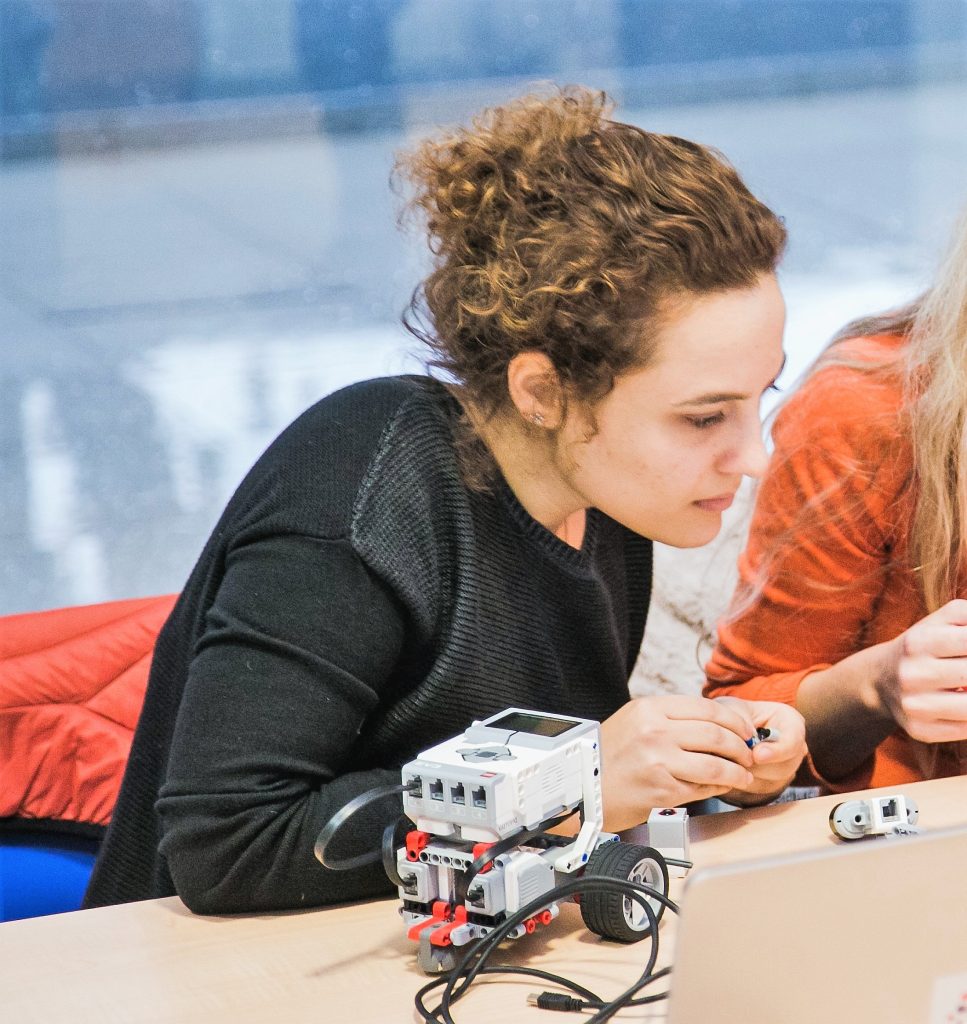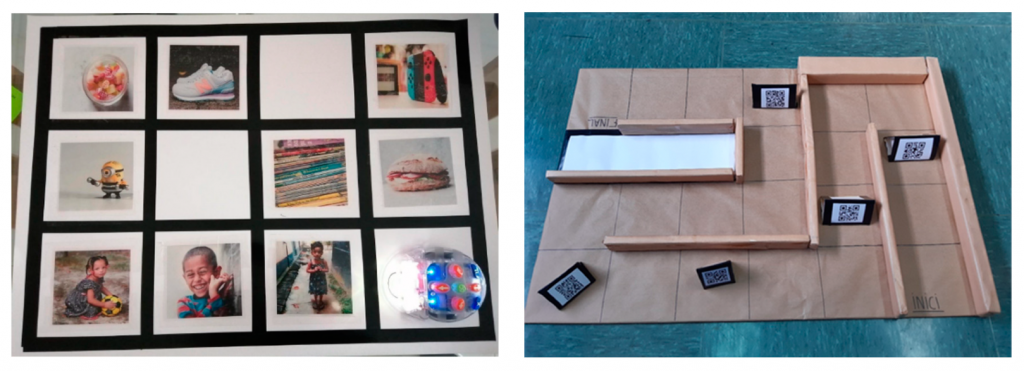23/01/2021
Researchers from the ARGET Group of the URV have developed guidelines on teacher training in robotics and a pilot training program
The results and recommendations are based on the analysis of a pilot course on robotics-training for educators at URV’s Faculty of Educational Sciences and Psychology and other previous documented experiences. Holding this kind of training sessions during university studies and professional practice improve educators’ digital skills and knowledge, and also the quality and impact of classroom activities.

The results and recommendations are based on the analysis of a pilot course on robotics-training for educators at URV’s Faculty of Educational Sciences and Psychology and other previous documented experiences. Holding this kind of training sessions during university studies and professional practice improve educators’ digital skills and knowledge, and also the quality and impact of classroom activities.
Members of the Department of Pedagogy and the Applied Research in Education and Technology group (ARGET) of the URV have carried out two studies that focus on the educators’ digital skills and knowledge. The topic has been studied for years, and ARGET has a long and strong expertise on it. Nevertheless, educators’ digital skills and knowledge take nowadays on a special meaning, especially from the beginning of the COVID-19 crisis.
Their studies depart from the premises that, on one side, robotics resources alone are not enough to improve students’ learning; and on the other side, robotics activities at school should be supported by an appropriate educational framework and well-trained educators.
After an extensive review of robotics-training programs for teachers -previously published in scientific articles- and the analysis of a sixteen-hours pilot course (implemented at the Department of Pedagogy in the framework of the university course “Design of Educational Resources and Technological Environments for Training”, during the academic year 2019-2020), the authors elaborated a list of recommendations for the implementation of future teacher training courses. Their recommendations could be helpful for educational institutions that intend to apply teacher training in robotics.
Some examples of the recommendations are: to promote the exchange of ideas and materials between teachers during and/or after the training program; to provide teachers with the robotics kits they used on their training program (if available) so that they can use them in the classroom; or to give teachers the opportunity to put their technical and/or pedagogical knowledge into practice during the training program.

Moreover, their research results support the interdisciplinary integration of robotics in the school curriculum and in teacher training, and demonstrate that by using robotics, a variety of interdisciplinary school projects addressing sustainable development goals, can be created and applied in the school classroom.
The next step of their work is to design and conduct another robotics-training program for preschool educators and put it into practice at the URV’s Faculty of Educational Sciences and Psychology.
The authors of the studies are Mercè Gisbert, José Luis Lázaro-Cantabrana, Vanessa Esteve-González, Mireia Usart and Despoina Schina, whose doctoral thesis is in line with these articles. She is one of the PhD researchers jointly funded by Banco Santander and the European Commission, and one of the 45 doctoral researchers contracted through the URV’s Martí i Franquès COFUND Programme in its second edition. Their conclusions and recommendations have recently been published in the journals Sustainability and Education and Information Technologies.
References:
Schina, D.; Esteve-González, V., Usart, M., Lázaro-Cantabrana, J.-L. & Gisbert, M. (2020). The Integration of Sustainable Development Goals in Educational Robotics: A Teacher Education Experience. Sustainability, 12, 10085. https://doi.org/10.3390/su122310085
Schina, D., Esteve-González, V., & Usart, M. (2020). An overview of teacher training programs in educational robotics: characteristics, best practices and recommendations. Education and Information Technologies. https://doi.org/10.1007/s10639-020-10377-z
